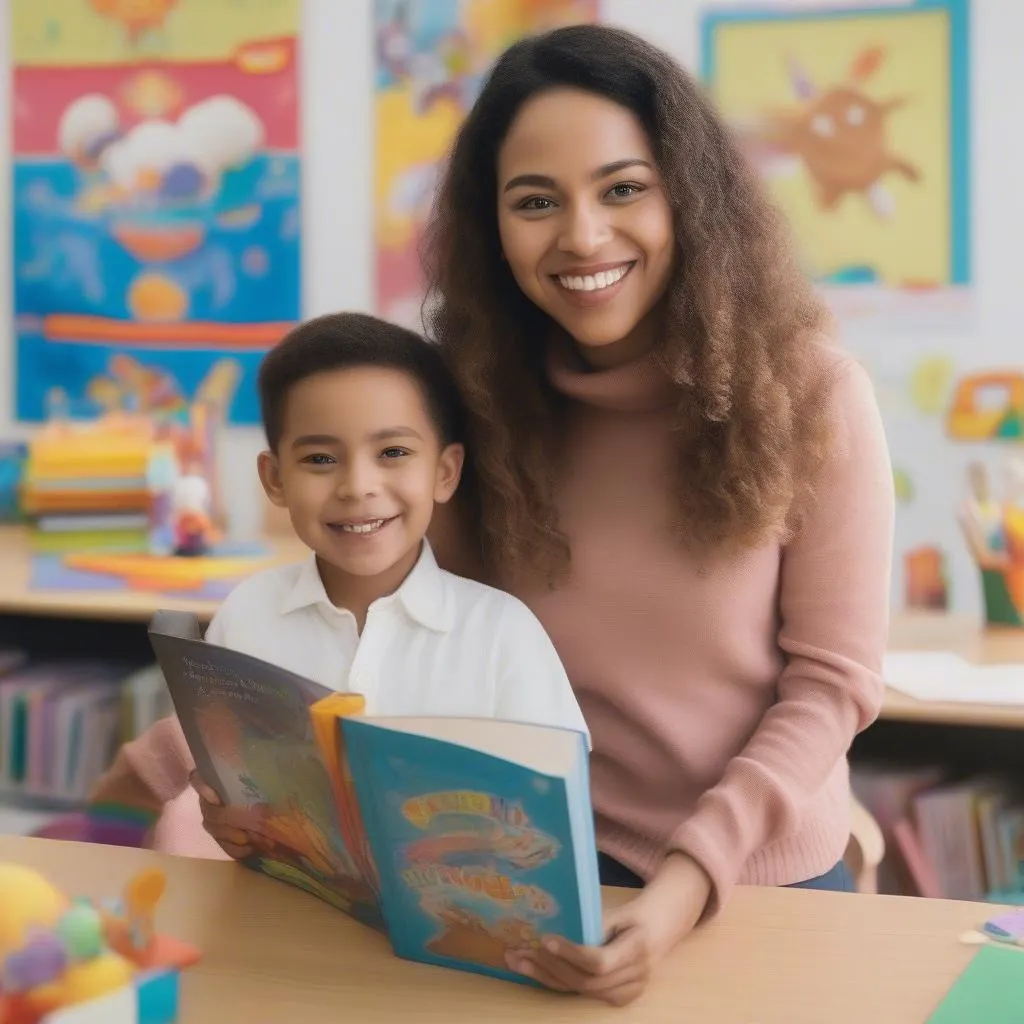Just like young saplings need nurturing and care to grow into towering trees, children need education and moral cultivation from a young age to become valuable members of society. Moral education lesson plans for preschoolers serve as a precious toolkit to help children cultivate good qualities.
1. Why is Moral Education Curriculum Important?
“Teaching children to be human is more important than teaching them to read.” This old proverb highlights the importance of moral education for young children. A good character is the foundation for children to grow up to be valuable individuals who know how to love, share, and help others. Moral education lesson plans are tools that help teachers guide and impart the necessary knowledge and skills to help children develop good character.
2. Content of Moral Education Curriculum for Preschoolers
Moral education curriculum for preschoolers includes many contents, but mainly focuses on the following aspects:
2.1. Moral Education
- Personal Experience: I remember when I was in kindergarten, my teacher used to tell us stories about moral examples of national heroes, people who always put the interests of the community first.
- Moral Practice: Creating a positive educational environment, providing opportunities for children to participate in group activities, interact with friends, thereby developing communication and cooperation skills, and learning to love and help friends.
- Family Connection: Bridging the gap between school and family, helping parents to participate in the moral education of their children.
2.2. Emotional Education
- Love for People: Teaching children to love their parents, grandparents, teachers, friends, and those around them.
- Love for Homeland: Teaching children to love the beautiful natural landscapes, national culture, and historical traditions of their homeland.
- Self-respect and Confidence: Teaching children to respect themselves and be confident in their abilities.
2.3. Life Skills Education
- Communication Skills: Teaching children how to communicate and behave politely and respectfully with everyone.
- Cooperation Skills: Teaching children to cooperate with friends in group activities, to share and help friends.
- Problem-Solving Skills: Teaching children how to think, analyze, and solve problems appropriately.
3. Methods and Forms of Organizing Activities in the Curriculum
- Methods: Experiential learning, games, storytelling, discussion, practice…
- Forms: Classroom activities, outdoor activities, extracurricular activities…
4. Important Notes When Developing a Moral Education Curriculum
- Choose Appropriate Content: The content must be appropriate for the age, psychology, and learning ability of children.
- Use Appropriate Organizational Forms: Use diverse organizational forms to attract children’s attention.
- Create a Fun and Comfortable Learning Environment: The learning environment must be fun and comfortable, creating conditions for children to develop freely.
- Regular Evaluation: Teachers need to regularly monitor and evaluate children’s learning outcomes to adjust the curriculum content accordingly.
5. Story about Moral Education Curriculum
I remember when I was in kindergarten, my teacher often told us the story of “The Sparrow and the Grain of Rice”. The story is about a little sparrow that was injured and very hungry, unable to fly to find food. A kind boy picked up grains of rice from his rice bowl to feed the sparrow. Thanks to the boy’s kindness, the sparrow recovered and flew away. Through the story, the teacher taught us about compassion and helping others in difficulty. Compassion is one of the good qualities that needs to be cultivated from a young age.
6. Expert Consultation
Prof. Dr. Nguyen Van A, a leading expert in preschool education in Vietnam, stated: “Moral education curriculum for preschoolers must be based on Vietnamese cultural foundations, combined with progressive humanistic values of humanity. The curriculum needs to be an effective tool to help children develop comprehensively in character, intellect, physical and mental well-being.”
7. Conclusion
“Teaching children to be human is more important than teaching them to read.” Moral education lesson plans are a precious toolkit to help children “sprout” good qualities, becoming well-behaved children, good students, and good citizens of the country.
Do you want to learn more about topics related to preschool education? Visit the website https://tuoitho.edu.vn/chuong-trinh-boi-duong-quan-ly-giao-duc-mam-non/ to discover useful information.
Leave a comment below if you have any questions on this topic.
